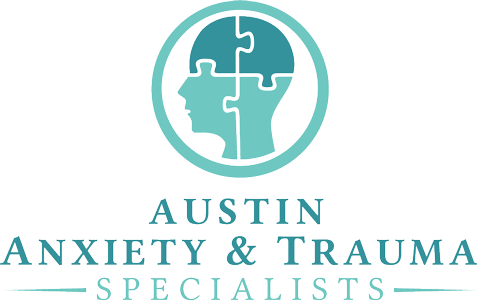When faced with an immediate threat, fear is a totally rational response. Our heart races and adrenaline soars, providing enough energy to fight or flee. This stress response is often referred to as “fight or flight,” a self-defense mechanism that energizes and alerts us in dangerous situations.
The same response can be triggered by uncertain situations and cause anxiety. Anxiety attacks are episodes of crippling fear of the unknown or imagined outcomes, and are a common symptom of Generalized Anxiety Disorder (GAD).
Anxiety and panic attacks are often used interchangeably, but two factors set them apart. Persistent panic attacks are a symptom of panic disorder and usually occur suddenly and seemingly without cause. On the other hand, the symptoms of anxiety are often triggered by stressors and can build for hours or even days until an attack. You may notice symptoms leading up to an attack and outlasting the peak. Keep reading to learn how to recognize an attack and ultimately overcome anxiety:
What an anxiety attack feels like
Over time, anxiety toward a real or perceived threat can build up to a crisis point. You may feel overwhelmed by choices, imagined outcomes, or fear of the future. If these worries intensify to an unbearable amount, you may feel “attacked” by these symptoms:
Physical symptoms:
- Increased heart rate
- Chest pain
- Shortness of breath
- Trembling
- Dizziness
- Hot flashes, chills, or sweating
- Stomach discomfort
- Fatigue
- Restlessness
- Muscle tension or aches
- Numbness
- Disturbed sleep
Psychological symptoms:
- Onslaught of panic
- Extreme worry and distress
- Irritability, anger
- Easily startled
- Difficulty concentrating
- Overwhelming fear
- Feelings of helplessness
- Strong urge to escape
- Inability to think about anything other than the present worry.
What triggers an anxiety attack?
Stressors are personal. What worries one person may not worry another. People with social anxiety may be unnecessarily afraid of walking to the bathroom in an unfamiliar restaurant. If their discomfort has been building up through the day, this moment could be the catalyst for an anxiety attack. Memories of traumatic events or being in similar situations could also build up extreme discomfort until an attack occurs, especially for those living with Post-Traumatic Stress Syndrome (PTSD). Other triggers that may provoke anxiety attacks are:
- caffeine
- pressures at work
- social gatherings
- bad traffic
- medications or supplements
- chronic conditions or chronic pain
- personal phobias
- withdrawal from addictive substances
- disorganized environments
- crisis or natural disasters, even those distant
This may seem like a list of “normal” stressful situations. You’re right! Most of us do feel anxious when deadlines are tight and we’ve hit every red light on the morning commute. But when anxiety causes persistent attacks and the stress disrupts your life, it’s time to regain control.
What to do when you’re having an anxiety attack
When you feel an attack coming, it’s important to take care of yourself the right way.
Take a walk. Physically removing yourself from a triggering environment can help clear your mind and recenter your thoughts.
Ground yourself. Anchor to the present and distract yourself from ruminating thoughts with one of these grounding exercises.
Breathe deeply. Regulating your breathing with techniques like soft-belly breathing or box breathing may help regain a sense of control and relieve a triggered fight or flight response.
Self care. After an attack, it’s important to treat yourself with patience and kindness. Drink some water, have a snack, and take a nap. When you’re ready, talk to a loved one in your support system or sort through emotions with calming, mindful journaling.
Bonus tip! If an overstimulating environment triggered an attack, we’ve got you covered.
Read: Overstimulated? Here’s how to stabilize
Treatment for anxiety disorders
Anxiety attacks can be scary. You might feel like you’re alone in your head, devastated by thoughts you can’t magically stop worrying about. As much as your loved ones want to help you, they may not always know the best way to support your needs.
If you feel worrying interferes with your work or personal life, if you feel unable to control anxious thoughts, or especially if worrying leads to suicidal thoughts—
We recommend you see a doctor, therapist, or reach out to help 24/7 at 800-273-8255, www.suicidepreventionlifeline.org. These thoughts don’t go away on their own and may worsen over time.
The good news is that anxiety is highly treatable. Our anxiety specialists are able to prescribe effective treatments like Cognitive Behavioral Therapy (CBT), Rational Emotive Behavioral (REBT) therapy, or Eye Movement Desensitization and Reprocessing therapy (EMDR). Schedule an appointment at Austin Anxiety and Trauma Specialists and we’ll recommend treatment that’s right for your goals. It’s time to get the right help.






